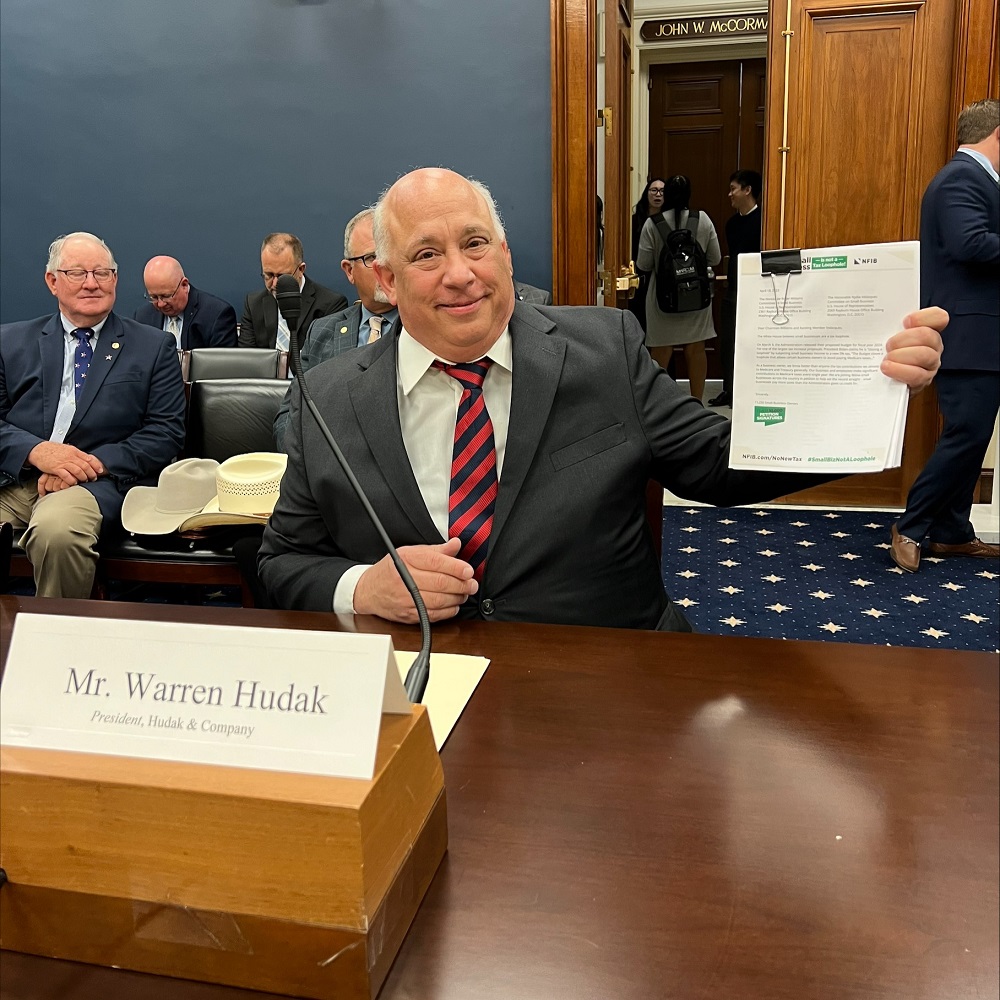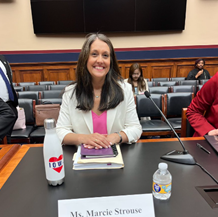May 3, 2023
Three NFIB Members Testify at U.S. House Hearings
The first four months of this year and the 118th Congress have brought with them numerous U.S. House hearings focused on issues that impact small businesses. As a part of NFIB’s work to connect independent business owners directly with their lawmakers, a series of NFIB members have been able to testify in these hearings and make their voices heard on the circumstances and concerns of small businesses. In three recent hearings, NFIB members testified about small business tax issues, expanded IRS enforcement, and healthcare costs.

Warren Hudak is the President of Hudak and Company, an accounting and payroll firm in Camp Hill, Pennsylvania. His firm has 11 employees and 90% of their customers are small businesses. On April 18, Warren testified in front of the U.S. House Committee on Small Business about the upcoming expiration of the Small Business Deduction (199A) included in the Tax Cuts and Jobs Act, concerns with tax increase proposals in the Administration’s Fiscal Year 2024 budget request, and concerns about the IRS enforcement expansion plans.
“It is our job to work with small business clients to translate the complicated federal tax code and frequently changing tax provisions,” Hudak said. “This challenge comes on top of other economic problems that small businesses are facing, which include stubbornly high inflation and energy costs, increased regulatory burdens, and pervasive workforce shortages. Our business similarly faces these challenges as our labor costs are up 40% and software costs have tripled since the pandemic began.”
He focused his testimony on the small business benefits of the Tax Cuts and Jobs Act of 2017 and small business concerns with the Fiscal Year 2024 budget proposal from the White House. The Tax Cuts and Jobs Act is set to expire after 2025 if Congress doesn’t act. This will lead to substantial tax increases on small businesses and less certainty over the next two years. NFIB’s “My Small Business is Not a Tax Loophole” petition, signed by over 11,000 small business owners, was inserted into the record of this hearing urging Congress to reject the White House Fiscal Year 2024 budget proposal that includes new tax increases on small businesses.

On April 21, Alison Couch, owner and founder of Ignite Accounting, testified in a hearing titled: The State of the American Economy: The South, a U.S. House Ways and Means Committee Field Hearing in Peachtree City, GA. Alison’s accounting firm helps other small businesses, and she explained how inflation, the labor shortage, and the supply chain crisis have affected her client’s bottom lines. She finished by asking Congress to cancel the $80 billion budget increase for the IRS.
“The IRS continues to close phone lines, have extensive wait times, and long backlogs…the idea of funding this agency with $80 billion additional dollars to perform audits, which will add to all of their existing problems, before the current backlogs are cleared out and current calls are handled in a timely manner, is preposterous.”

To wrap up an active week for NFIB members, Marcie Strouse traveled to Washington, D.C. from Des Moines, Iowa and testified in front of the U.S. House Education and Workforce Subcommittee on Health. Marcie is a benefits expert who works closely with small business owners throughout the state of Iowa. She addressed the impact skyrocketing health insurance costs are having on small businesses and their competitiveness, and she urged the committee to provide small employers with tools to lower costs and increase health insurance coverage options.
“[Small business owners] are constantly worried about recruiting and retaining employees while keeping their businesses afloat, and this is particularly challenging in this environment with sustained high inflation and acute workforce shortages. Employee benefits have always been important but are even more crucial now.”
According to NFIB research, 63% of small employers believe offering health insurance to recruit and retain employees is very or moderately important. Ninety-eight percent of small businesses offering health insurance are concerned that healthcare costs will become unsustainable within the next 5-10 years.
Take Action: Urge your legislators to oppose new taxes on small businesses.
NFIB is a member-driven organization advocating on behalf of small and independent businesses nationwide.
Related Articles














